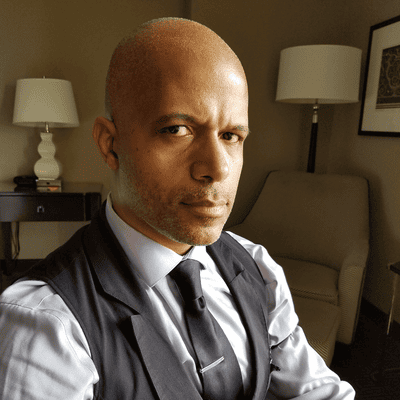Cloud, Data, and Political Protests Mark the 2022 AWS Summit
The return of the in-person event to New York City also saw a revival of disruptions by protesters calling out the cloud provider’s various government contracts.
It was an unexpected day at the Javits Center. What started with a sudden change in the keynote lineup at the AWS Summit here in New York wound up with a cascade of protesters disrupting the proceedings.
CTO Werner Vogels had been booked to deliver the opening keynote at the event, but Martin Beeby, principal developer advocate for Amazon Web Services (AWS), took the stage instead. It was then announced that Vogels had called out sick from the summit and Beeby stepped in, leading off with the usual rundown of services and resources at the cloud provider’s disposal. “We have 84 availability zones across 26 geographical regions,” Beeby said.
His presentation included notes on Amazon’s investment in renewable energy, almost 16 gigawatts of it from such sources as solar and wind projects across 19 countries. Beeby also discussed how the legacy of early inventions influence future innovations, citing how the width of railroad tracks became a factor in the development of rocket boosters for space travel because the rockets had to be moved by rail. “Decisions you make in the past stick with you for a long time in lots of interesting ways,” he said. “Business constraints can date back to decisions you made years before.”
Martin Beeby giving his keynote at the AWS Summit. Image credit: Joao-Pierre S. Ruth
Beeby related that to decisions companies make about the cloud, which may have long-term impact on future applications. He also discussed how the ever-growing flow of data generated by systems, sometimes in terabytes and petabytes of data, can be processed via cloud resources. “The cloud has changed the way that we do business, the way that we can store vast amounts of information,” Beeby said.
The first full hour of the keynote ran pretty much on track, including more discussion of data strategy, scalability, flexibility, and security. “We want to try to become a more data-driven organization,” Beeby said.
Protesters Take Action at AWS Summit
Everything changed when protesters took action in the final 30 minutes of the keynote.
Listen to "DOS Won't Hunt: Cloud, Data, and Political Protests at the AWS Summit" on Spreaker.
In the midst of Beeby’s discussion of machine learning, a protester stood up directly behind me, so close I felt him brush by my right shoulder as he rose.
“When will Amazon answer to the thousands of people demanding Amazon Web Services stop profiting from violence across the world?” the protester shouted. “Your platform powers racist policing, mass deportations, and war!”
This echoed the disruption of Vogels’s keynote at the 2019 AWS Summit, where similar questions were shouted at that event.
On Tuesday, the protester cited Amazon’s participation in Project Nimbus, the migration of significant parts of Israel’s government IT infrastructure to the cloud, a contract jointly awarded in 2021 to Amazon and Google. Concrete details about Nimbus are a bit hard to find, but one of the complaints raised by some shareholders -- and even some employees at Google and Amazon -- is the project would move much of Israel’s public cloud to resources within its own borders and legal jurisdiction, potentially alleviating international boycotts and other pressure on the country stemming from its ongoing conflict with Palestine.
At first, Beeby halted his remarks until the protester was led away by event staff, waiting until the shouts died down before continuing.
But that was just the beginning. Other protesters stood up one after the other elsewhere in the audience. Each time, they too, were led away by event staff -- only to be followed by another heckling protest. One protester repeatedly shouted, “No more tech for ICE and police!” before being picked up and physically removed from the venue. (ICE is the US Immigration and Customs Enforcement agency.)
This sequence repeated several times with Beeby halting, sometimes directing protesters to speak with Amazon representatives away from the keynote space, then attempting to resume his presentation.
The last protester to disrupt the keynote stood up at the tail end of the speech to shout: “Civil rights organizations from across the country wrote a letter to Amazon Web Services calling on the company to end its plans to host the dangerous Department of Homeland Security HART [Homeland Advanced Recognition Technology] biometric database,” the protester said. “This database will fuel mass surveillance and discrimination.”
Such public clashes may continue as domestic and foreign government entities turn increasingly to private sector technology providers to update, revamp, and overhaul their IT resources. AWS and peers such as Microsoft, IBM, and Oracle frequently compete for these potentially lucrative contracts, sometimes challenging each other in court over the way such contracts are awarded.
At Tuesday’s event, Beeby apologized to the audience for the disruptions, each of which only lasted a couple of minutes, and continued with the rest of his presentation.
Outside the Javits Center, a small group of protesters remained to continue their vocal, yet peaceful, outcry aimed at AWS. Not the first time the company has dealt with criticism about its business practices and not likely to be the last time such topics come up, though much of the audience at the summit was less than supportive of the protesters.
What to Read Next:
AWS CTO Vogels on Cloud Eliminating Constraints on Innovation
About the Author(s)
You May Also Like







